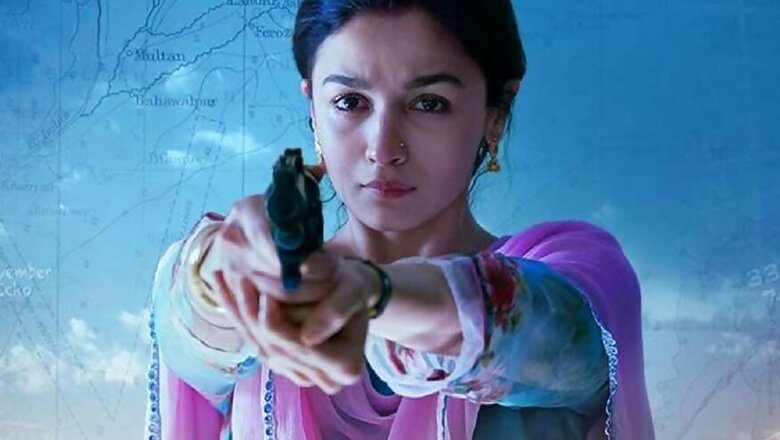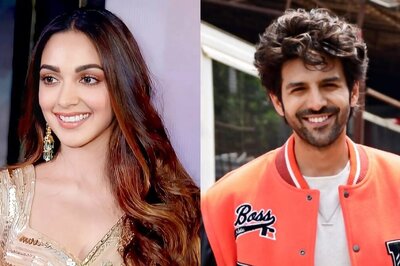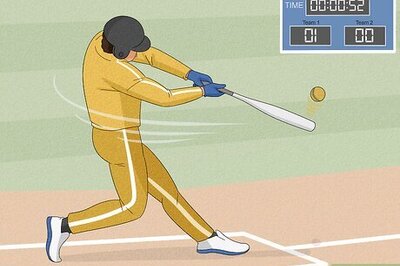
views
Filmmaker Meghna Gulzar's latest film Raazi hits the screens today. Although she debuted in 2002 with an unusual and sensitive film on surrogacy called Filhaal, it wasn't until her last release Talwar that her talent as a director became apparent. Since Talwar, Gulzar confessed that she has been gravitating towards gritty dark stories based on true events. Her latest offering, Raazi, starring Alia Bhatt, is one such story where a Kashmiri Muslim girl is married off into the family of Pakistani army officials by her father so that she can be the eyes and ears of Indian intelligence in Pakistan.
In a recent interview, Gulzar spoke about adapting Raazi from a book by Harinder Sikka titled Calling Sehmat and how she conceptualized the role of Alia Bhatt as a spy. You can read excerpts from the interview below:
How hard or easy was it to adapt Raazi from Calling Sehmat?
This is the first time I'm adapting a book. I started working purely from the perspective that when it is cinema you have so many tools at your disposal that you can use to your advantage, which a writer does not have. You have visuals, sounds, music, performances, costume, and sets. Each of these is arts in themselves. When you have them at your disposal, you make them work and take the film higher than where the book or a script has reached.
The attempt should always be to carry the written word forward, through your visual interpretation, which is what I did. With the characters, the advantage a book has over a movie is that you have so many words to explain what kind of people they are. You can have a sentence saying, 'Sehmat was an innocent girl. Her husband Iqbal was a sensitive man.' To show it visually is a task. There is a sequence in the film where Sehmat is handling a squirrel. For her, it is an important thing to save the squirrel. The sequence was incorporated to show her innocence in relation to her consequent journey, to give the audience a reference to what she was when she started out.
After Talwar, this is your second film based on true events. What is the toughest part of making films based on real stories?
Authenticity. I treat the audience with a lot of respect and I do not underestimate their intelligence at all. With internet and Google, everyone can check what is correct and what is not. I have got a feedback on the poster of Raazi from someone who had said, 'how can Meghna Gulzar do this? There is a sea harrier on the poster, and there was no sea harriers in 1971.' I will not answer that question because that person will know the answer when he sees the film but keeping it real and not being offensive especially to who you are talking about is important. Whether it is the deceased in Talwar and her parents or to this character, Sehmat, it is important to treat them with respect. Keeping their dignity intact is of prime importance to me that is also the toughest thing when you are doing a film based on true incidents.
Why did you pick Alia Bhatt and Vicky Kaushal to play the roles of Sehmat and Iqbal respectively?
Once I knew the story, I knew that their character arcs will undergo a long journey through the film. A really high level of performance was required. So, the first requirement was to cast actors who can deliver. Alia, as everyone by now knows, can do that. So can Vicky.
With Alia it was her physicality that worked for me. Sehmat was a twenty-year-old girl from Kashmir. Even though she is a spy, she is not Lara Croft, she is not the bride from Kill Bill. She is a young, fragile girl who is put through a tumultuous journey, but her fragility remains intact. She doesn't transform into superwoman. She is a spy yet she is feminine, she is in pastel flowy outfits.
Alia has that vulnerability and fragility in her. When she does something, whether you approve of or not, when she cries because even she doesn't approve of the thing she is doing, you will feel for her. She has that quality.
Vicky's character is very sensitive. He is a person in the Pakistani army. A film being made in India with a Pakistani army guy, it's almost automatically assumed that he will be the villain. But, he is not. Even his character's journey is as difficult as hers, so I wanted a good actor.
Parts of Raazi has been shot in Kashmir, and yet there are no working theatres in Kashmir. Do you think locals will get to see your film?
There are theatres in Kashmir, but right now, they are not functioning. In my last visit, when I spoke to the locals while we were shooting, they said that there is one theatre there which is functioning. So, I am hoping that they will get to see Raazi because a lot of them have also made an appearance in the film.
Why have you never collaborated with you father, Gulzar Sahaab and written a film with him?
We tried to collaborate in my first film Filhaal, but we failed miserably. It is pretty apparent that as creative people we are very different, and our creative expressions are not same. We might have written only five scenes of Filhaal together and then I said, 'Papa main yeh katam karke apko dikha dungi' (Papa, I will finish it and show it to you).


















Comments
0 comment